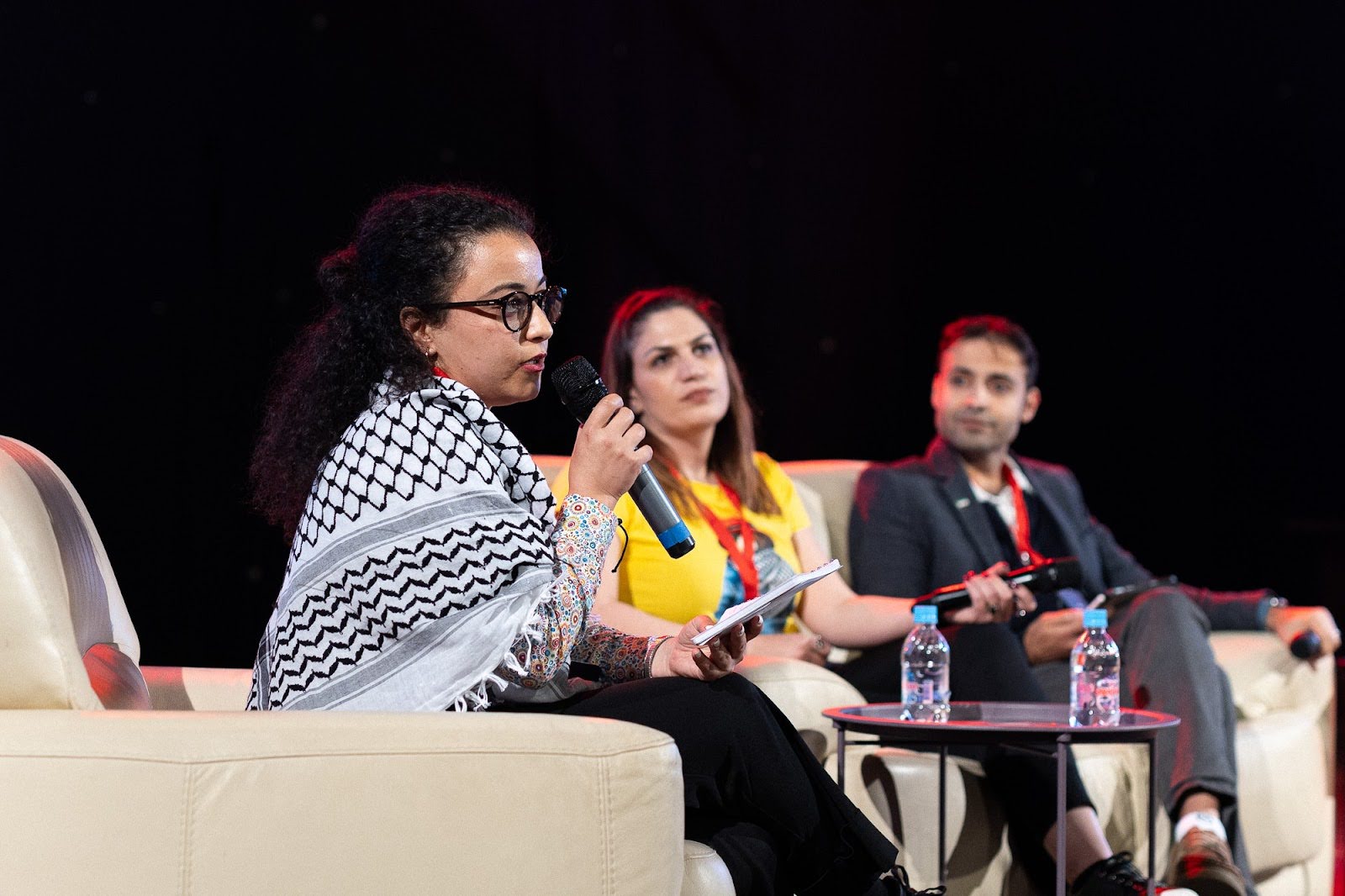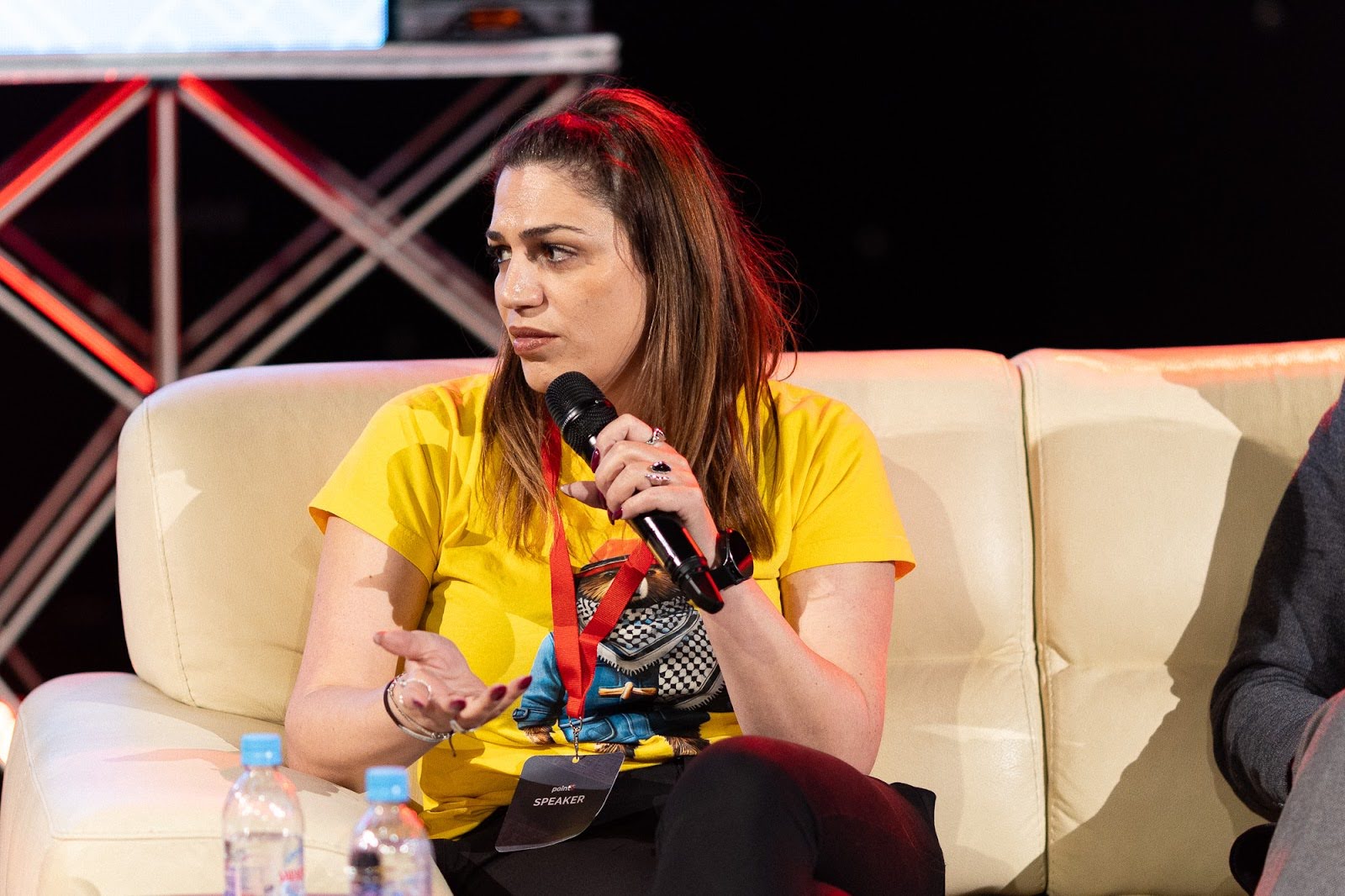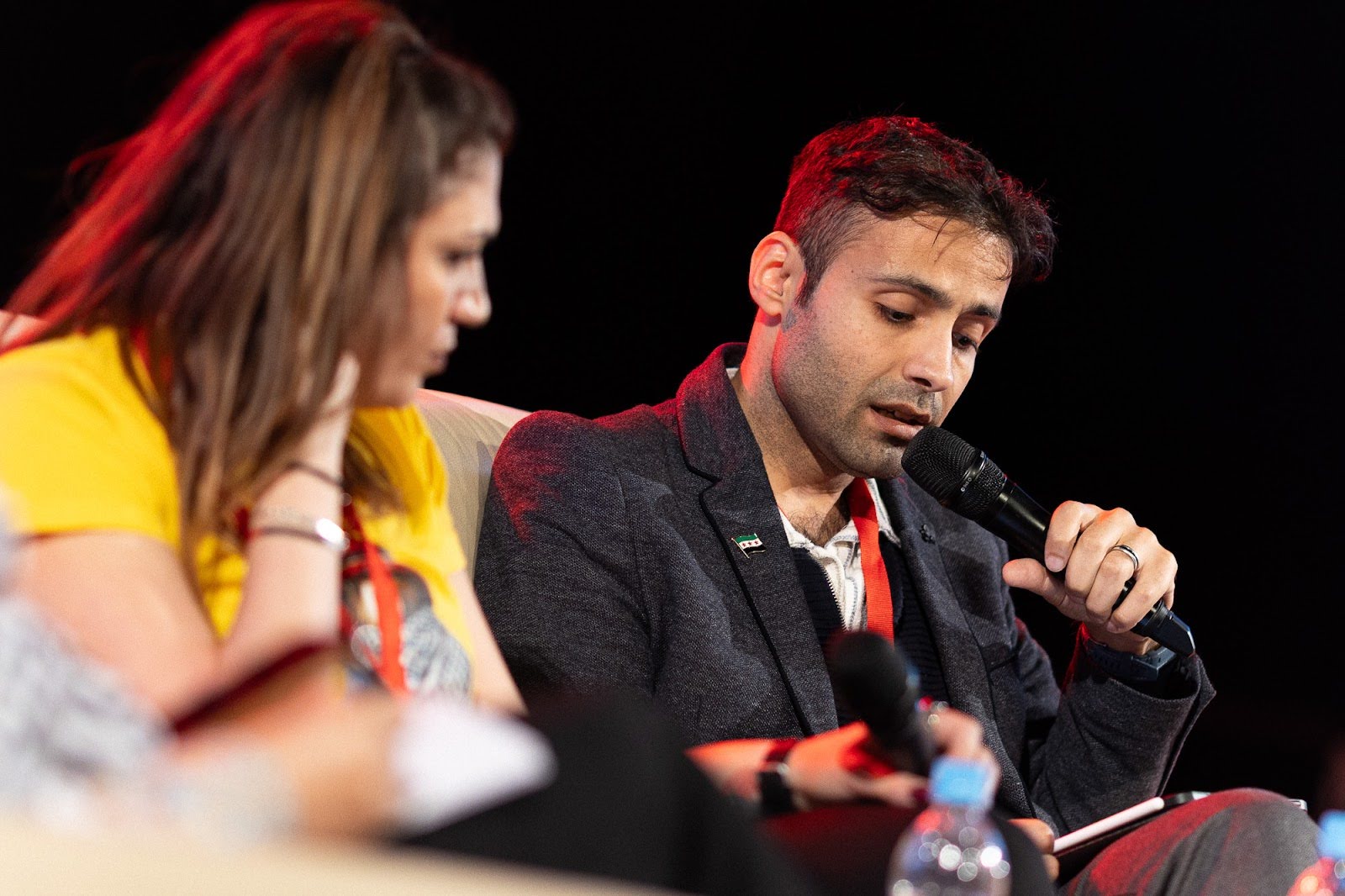Fact-Checking from the Frontlines: MENA Perspectives on Media and Misinformation
The first day of the Point 13 conference was closed with the session that explored complex challenges of verifying information in one of the world’s most turbulent regions when it comes to political (in)stability and repression. Journalists and activists from the MENA region brought insight in their day-to-day work and activities in defending information credibility in – what we truthfully call – the first line of defense.

With shifting narratives, digital manipulation and lack of source credibility, journalists and fact-checkers in the region of the Middle East and North Africa (MENA) face unique obstacles in attempting to deliver valuable information, but also play crucial roles in defending truth and working for public trust.
Moderated by Siwar Gmati, a human rights activist and a member of the Executive Committee of I WATCH, the Tunisian chapter of Transparency International, the last panel of the first day of the Point 13 conference focused on two leading voices from the MENA region whose fight for credible information in such a conflict-affected area is, as Siwar noted, “concrete and real” – Riham Abu-Aita, a Palestinian fact-checker, communications expert, and freedom of expression specialist, who co-founded the Palestinian platform for fact-checking and media literacy Kashif, and Ahmad Primo, a Syrian journalist and the founder of fact-checking platform Verify-sy.
Censorship and fear
Asked how she and Kashif navigate challenges about information and disinformation over the past 20 months in Gaza, Riham noted that disinformation flourish during the crisis, “but this war is really different, because it is long and devastating”.
– We are facing challenges all the time, and on top of them is fear – fear of being arrested or detained, because more than 1,030 journalists have been detained since the beginning of the war. All of this leads to censorship in a lot of cases. We are also facing limited access to information, such as lack of electricity or internet connection, especially when we want to get information from Gaza. At times, we need a whole week to reach a source of information for an easy fact-check. In this atmosphere, there is a lot of tension, even among Palestinians. We also feel pressure from the audience, because sometimes, it seems they just want to find someone to blame, Riham said.
Ahmad, who works to expose false narratives and propaganda in often dangerous Syrian context, both under the Bashar al-Assad regime and ISIS, says that many actors are trying to control the narrative: regime, opposition groups, or extremists. Noting that the majority of Syrian people are getting information from social media, he underlined the important role social media platforms play in the fact-checking ecosystem, but also the role of media literacy as a way to navigate this information.
But when it comes to social media and tech companies, reaching the public, as Riham noted, can be tricky, as they face shadow-banning and labeling their content as fake news from some large online platforms. She singled out Pallywood (a portmanteau of “Palestine” and “Hollywood”), a disinformation campaign that suggests that all information that comes from Gaza is fake, with millions of reach and thousands of followers.

Asked on threats and struggles he faced on the frontlines, reporting from a hostile environment full of smear campaigns, legal threats, pressure, and censorship on a daily basis, Ahmad said Syria has always involved serious risks, both security-related and legal.
– From the early days of our work, we faced threats from multiple sites, and we were accused of being spies, traitors, or working for a foreign agenda. Every single one of our fact-checks triggers a wave of online harassment, hate speech and even direct threats. They launched campaigns accusing the platform, and sometimes accusing me personally, as executive director, of being affiliated with political or intelligent actors. In the same cases, they fabricated screenshots and fake posters in our name or created a false statement written by members of our team, Ahmed said, noting these techniques were clearly designed to confuse the audience and damage trust in their work.
But he developed some creative strategies to reach more people and to ensure an access to verified information.
– One of the most important lessons we have learned through our work is that the problem is not just that disinformation exists, but the problem is the deep lack of media literacy among the public, which the war has only made it worse. From the beginning of Verify, we recognized this gap and started to address it. We have worked to raise awareness through many methods, including training workshops, public webinars, awareness campaigns, and fellowship programs. We also developed a new three-year strategy planned to expand our impact. It’s built around three key tricks. The first one is expanding our team to scale up our daily investigation, fact-checking, and improve the deep reach of our reports as the volume of misinformation grows. Second is launching Verify Academy, an online learning platform that will give the people an opportunity to learn the methods and tools that help them. The third is integrating artificial intelligence into our verification process. All these efforts aim to make verified information, not just accessible, but understandable and shareable information, he explained.

Nothing but the truth
Riham also shared some good practices to maintain standards while operating under a conflictual environment.
– We can’t drag ourselves into emotional things or propaganda, and it is very important to remind ourselves every day that we just want the truth, and we want people to know the truth. During the war, we became a membership of the International Fact-Checking Network. We maintained our professionality and we got this membership during the war, Riham recalled it as a barometer of knowing they maintained neutrality even during hard times.
At the end, Siwari called for advocacy and mobilization for the long term, but as a gesture at the Point conference, she invited the audience to follow Kashif and Verify on social media platforms for very valuable information from Palestine and Syria – the real truth-tellers from the MENA region.
Author: Aldijana Handžar Zorlak